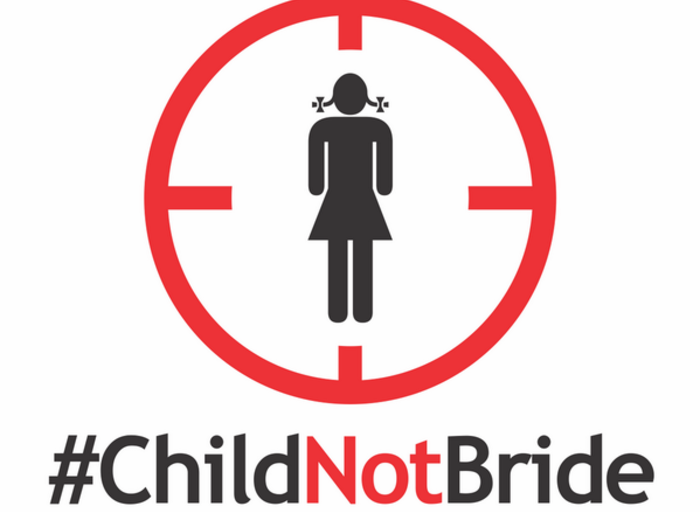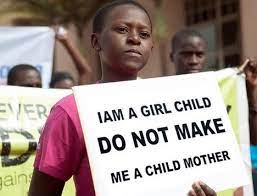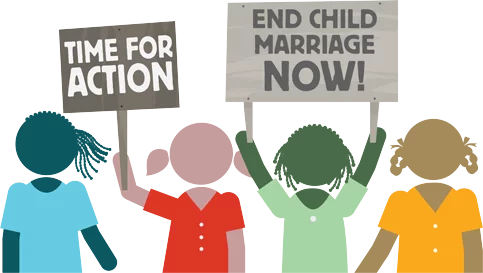Nigeria has once again cemented its horrible reputation for suffering as it has been listed in the top bracket of countries with an extraordinarily high number of child brides.
A new UNICEF analysis estimates that there will be an additional seven million child brides in Nigeria in the future, bringing the total number to almost 20 million.
For Africa’s most populous country, this should be of huge concern, since intricate numerous variables, including culture and religion, contribute to this outdated practice. Little girls are coerced, cajoled, and pushed into marriage with much older men across the country.
A report, titled “Situation Analysis of Children in Nigeria: Ensuring Equitable and Sustainable Realization of Child Rights in Nigeria,” coauthored by UNICEF and the Federal Government exposes this conundrum. Nigeria, with a population of 206.13 million people, has 22 million child brides.
This is 40 per cent of the total population of child brides in two sub-regions of Africa—West and Central Africa. By percentage, Nigeria has the 11th highest child bride population worldwide; occupying the top three positions are, Chad (with 67 per cent), Central African Republic (68 per cent), and Niger Republic (76 per cent).
The Niger Republic taking first place has only 4.7 million child brides. Nigeria, on the other hand (ranked 11th), has 22 million child brides! This is abnormally high.
Worldometer estimates that the figure is expected to rise to 29 million by 2050.
According to the Nigeria Demographic and Health Survey (2013), 58.2% of Nigerian girls were married before the age of 18. The North-West had the highest proportion of women who married before the age of 15, with 32.5 percent, while the South-East had the lowest, with 4.1%. This shows why the number is extremely huge.
Poverty and a refusal to educate children are the primary motivators. Nigeria has the highest number of children in the world who are out-of-school and the number ranges from 10 million to 16.5 million.
In May, UNICEF released a new figure of 18.5 million children, with girls accounting for 60% of the total. These girls are most vulnerable to child marriage because they are not in school.
Despite the fact that Nigeria passed the Child Rights Act in 2003 to improve the lives of children, Gombe, Kebbi, Borno, Bauchi, Zamfara, Adamawa, Yobe, and Kano states are yet to implement it, according to UNICEF.
It is sad to say but implementation is weak in the states that have adopted it. Many state governments have neglected their responsibility to educate children.
In 2017, Lamido Sanusi, a former Emir of Kano, stated that 75% of the “girls” given out in marriage in northern Nigeria were illiterates. His advice to state governments was to stop building mosques and instead invest in education but this has gone unheeded by the governors. Many of those responsible for child marriage hide behind archaic cultural and religious practices.
Indeed, the heinous practice is widespread among the rich and poor, particularly in northern Nigeria. The consequences are disastrous. Not only is the girlchild denied an education and a normal life, but her health is frequently put at risk.
According to the United Nations sexual and reproductive health agency, Nigeria has the highest prevalence of vesicovaginal fistula cases in the world, a disease in which a woman leaks urine directly from her bladder to the vagina.
UNICEF reports that six African countries have made significant progress in reducing child marriage over the last 15 years. Algeria (6.0 to 3.0%), Tunisia (7.0 to 2.0%), Rwanda (6.1 to 7.0%), Guinea-Bissau (44 to 24%), Zambia (46 to 31%), and Ethiopia are all on the rise (60 to 40 per cent). Nigeria has no justification for continuing to allow child marriage.
The solution, according to UNICEF, is partly in the law. It wants the federal government to pass legislation that makes marriage legal for people over the age of 18.
States that want to abide by or even raise the stipulation can do so as a federation. Lesotho, a shining example, has raised the legal marriage age for women to 21. This might seem extreme, but is also preferable.
As a result, religious and political leaders, as well as federal and state governments, must admit their failure and launch campaigns to protect girls from this heinous phenomenon.
This should be widely and strictly implemented. States should pass and enforce new laws making child marriage more punishable.




